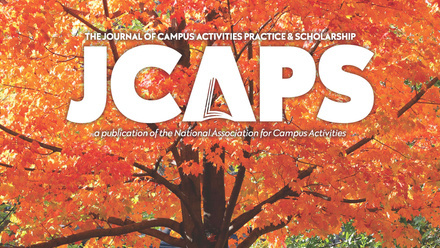Social Connections Matter: A Look into New Student Affairs Professional Wellness and Attrition Intentions - JCAPS Vol. 1 Issue 2
The role of new student affairs professionals is broad, complex, and ever-changing. They serve as mentors, role models, and educators (Guthrie, Woods, Cusker, & Gregory, 2005). New student affairs professionals are tasked with the holistic development and growth of students, which requires tireless work both outside and inside the classroom (Burkard, Cole, Ott, & Stoflet, 2005; Keeling, 2006; Keeling & Dungy, 2004; Waple, 2006). Through interactions aimed at connecting students to their educational pursuits (e.g. programs, events, organizations), new professionals not only impact personal growth and academic motivation but also affect student retention, persistence, and graduation (Astin, Sax, & Avalos, 1999; Martin & Seifert, 2011; Pascarella &Terenzini, 1991, 2005; Viaden, 2015).
In the process of meeting the needs of students, new professionals tend to be altruistic and sacrifice their own wellness to meet those needs (Beer et al., 2015; Sackney, Noonan, & Miller, 2000). By putting their students first through programming and services, new professionals may be placing their own wellness and self-care in jeopardy. Wellness is a multifaceted, multidimensional (holistic) approach to optimizing well-being and health that incorporates body, mind, and spirit to increase an individual’s capacities (Myers, Sweeney, & Witmer, 2000; Puig et al., 2012). One of the many aspects that influence wellness is social connections. Social support and connections with others are vital to maintaining a minimum level of wellness and self-care.
Although wellness has been studied in numerous other fields, surprisingly little research on wellness within student affairs, particularly for new professionals, exists. With the concept of wellness in mind, this quantitative study sought to investigate the relationships between wellness and attrition intentions in new student affairs professionals. The following research question guided the study: What relationships exist between wellness and reports of intended attrition among new student affairs professionals? Specifically, this article looks narrowly at the relationship between social connections (designated as “the social self” within this study) and wellness in student affairs professionals.






